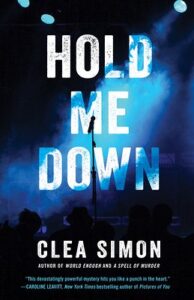The punk rock scene I came up in never had much in common with an English village. But the nocturnal world of basement clubs and backstage passes has long proved rich territory for crime writers examining themes of community, creativity, and fame. As I’ve turned from my usual cat cozies to psychological suspense, the mix of inspiration, ambition, alcohol, and passion that fuels this gut-level music has proved irresistible. And while there are wonderful mysteries set in the various musical universes, from the famed La Fenice opera house (Donna Leon, Death at La Fenice) to the brothels of Storyville (David Fulmer, Jass), I’d like to highlight five non-crime novels that left their imprint on this fan.
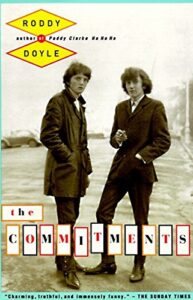
The Commitments: The first installment in Roddy’s Doyle’s Barrytown trilogy about the creation and ultimate self-destruction of a soul group in a depressed Dublin neighborhood gets everything about being in a band right. From those first collaborative sparks, when everything comes together to form something bigger and more beautiful, to the inevitable clashes of personality and ego, The Commitments is alternately melancholy and funny, with truth as a motif throughout.
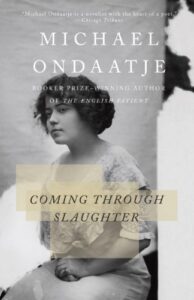
Coming Through Slaughter: Michael Ondaatje’s highly fictionalized—excuse me, wildly improvised—take on jazz pioneer Buddy Bolden’s life picks up at the very end, when the trumpeter and musical pioneer was institutionalized. Imprisoned under particularly brutal conditions in the East Louisiana State Hospital for the last years of his life, Bolden was never recorded, and yet his wildly inventive playing is crediting with moving this brash new music, the soundtrack of Storyville brothels and blood buckets, into something beyond blues. Before his disappearance and subsequent death in 1931, he would influence King Oliver and Louis Armstrong (and whose full, powerful sound can be heard several generations later in Nicholas Payton’s playing). But beyond the tributes, not much is actually known about Bolden. He came up hot, played great, and then disappeared for two years before re-emerging as a wild and uncontrollable force—a genius whose demons and, undoubtedly, the racism of the era resulted in his final imprisonment. Ondaatje’s lyrical, often stream of consciousness prose re-imagines Bolden’s untethered creative consciousness as it circles back through his New Orleans youth and musical heyday. Short, sharp, and brilliant, this novel captures the electrifying freedom of the music in short, sharp bursts as bright as a trumpet blast.
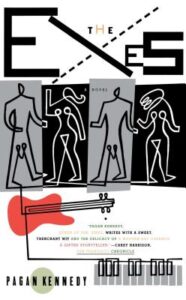
The Exes: Pagan Kennedy knew the same ‘80s indie rock Boston scene that I did and understands its incestuous relationships intimately. She plays that closeness for wild humor, however, when she depicts a band made up entirely of people who used to be lovers. The concept is flawed from the start, of course. Hank and Lilly, going through their own breakup, should not be playing together, but when they decide to make their breakup a theme—and call their band The Exes—the die is cast. They rope in another former couple, and for a while it works, as much as things ever do for bands at the basement club level. But although the four might think they’re over their interpersonal drama, when they hit the road, making art in close quarters brings out all their demons. Larded with fun pop culture references (Kiss’ Love Gun makes an appearance), this short novel, told from all four perspectives, is also surprisingly sweet. A love letter to an age, and an era, long gone.
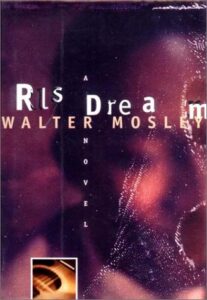
RL’s Dream: A rare non-mystery from crime fiction great Walter Mosley, this meditative take on a fictional Black blues musician, Soupspoon Wise, and his unusual relationship with the white alcoholic Kiki, encompasses the history of the blues, from its rural roots to its urban renaissance, as well as race relations in America, “passing,” and the Great Migration. Soupspoon may be down and all but wrung out when we meet him, but his growing dependence only adds to his humanity. More to the point, it highlights the brilliance and dignity we see in his memories, the core that elevated his music to greatness. Tragic and poetic, and maybe, ultimately, as redemptive as the music at its core.
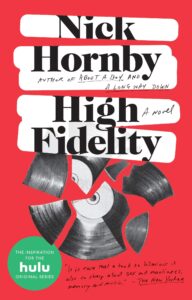
High Fidelity: Nick Hornby’s anti-hero isn’t a musician. In fact, Rob, a record store owner, apparently lacks not only the ability to create, he also falls shockingly short on the empathy needed for collaboration—or relationships of any lasting kind. But in his utter commitment to music, his need for certain songs to give voice to his own inchoate emotions, he’s recognizable to every fan. At least, he was to me.
***
There are so many other novels that could have been on this list: Jennifer Egan’s A Visit from the Goon Squad, Don DeLillo’s Great Jones Street, and Wesley Stace’s Wonderkid, for starters. Shoutouts, as well, to Alexia Gordon, Bill Moody, Roz Southey, Beverle Graves Myers, Donna Leon, and David Fulmer, and all the other wonderful mystery authors who mine musical worlds for mood, character, and setting. All these authors understand the difficulty of “dancing about architecture,” but they still do their best to keep the beat.


